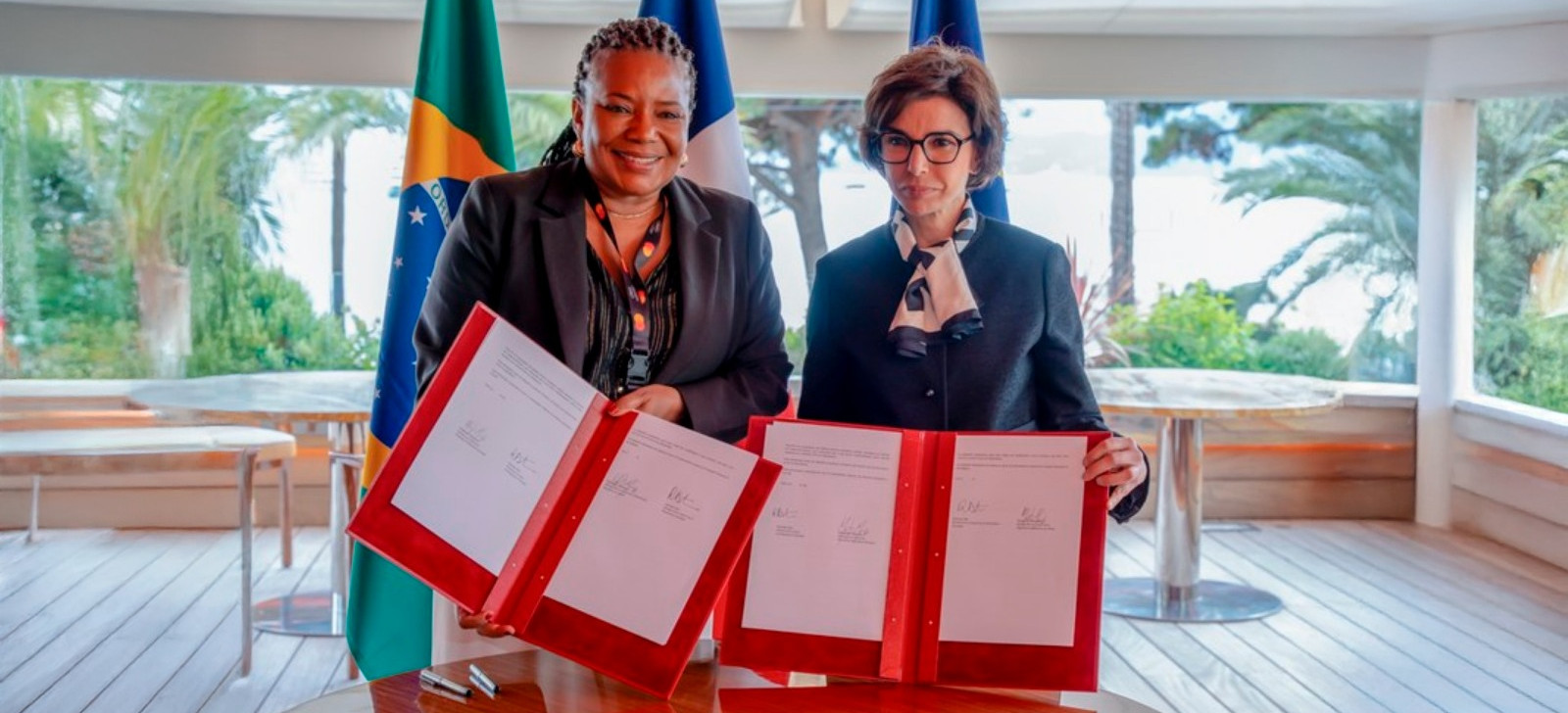Brazil and France sign cooperation agreement in the museum and heritage sector
18 de May de 2025

By Cenarium*
BRASÍLIA (DF) – The Ministries of Culture of Brazil and France have sealed an agreement for the development of cooperation in the museum and heritage sector. The Minister of Culture, Margareth Menezes, and the French Minister of Culture, Rachida Dati, signed the declaration of intent this Friday, 16th, in France. The agenda takes place while the Brazilian minister is in Cannes, leading a delegation participating in the Marché Du Film, where Brazil is the Country of Honour.
Among the main objectives of the agreement are the promotion of the exchange of good practices and knowledge, encouraging collaboration among professionals and the strengthening of professional networks; initial and continuous training in the heritage and museum sectors; the encouragement of the development of projects to protect and promote Afro-Brazilian heritage on the African continent and in Brazil; and the strengthening of the learning of the languages and cultures of Brazil and France.
For Minister Margareth Menezes, the signing consolidates an important strategic effort between the countries. “Bilateral cultural cooperation contributes to the expansion of knowledge, experiences, and the development of good practices. Not to mention the growth of internationalisation of projects and actions that can benefit both Brazil and France in terms of preserving our heritage and our museums,” she said.

The document was jointly drafted and negotiated by the Ministry of Culture, the National Institute of Historic and Artistic Heritage (Iphan), and the Brazilian Institute of Museums (Ibram). “We celebrate this protocol which strengthens cooperation between Brazil and France and recognises the importance of safeguarding and preserving cultural and natural heritage, with an emphasis on promoting heritage education initiatives and community and group participation in the management of cultural assets,” noted Iphan President Leandro Grass.
“The signing of this Protocol of Intent is another step in strengthening international cooperation in the museum and heritage sector. For the Brazilian Institute of Museums, this partnership with France broadens horizons for technical exchange, fosters the continued training of professionals, and boosts the development of practices in preservation, accessibility, risk management, and museography. It is a valuable opportunity for the Brazilian museum field,” added Ibram President Fernanda Castro.
The treaty signed by the countries also provides for the creation of a committee to meet periodically to ensure its implementation, assess progress, propose additional initiatives, and resolve any challenges in the execution of the proposed actions.
Historic partnership
Brazil and France have a long-standing cooperation in all areas, especially in the audiovisual sector. This year also marks the Brazil-France Cultural Season, with important events in both countries. The Ministry of Culture supports around 300 cultural events in France this year, in more than 50 cities, from April to September. France will also host major events in Brazil, between August and December.
The Brazilian Minister of Culture also highlighted the importance of the partnership between Brazil and France in other cultural fronts. “The number of Brazil/France co-productions grows each year and currently represents around 20% of Brazil’s annual co-productions supported by the Ministry of Culture, with funds from the Audiovisual Sector Fund,” she said.
The shared objectives between the countries in cultural policies, with the perception that the State plays an important role as a driver of processes in the cultural sector and in supporting the arts, were highlighted by Margareth as a basis for responding to contemporary challenges.
“Culture plays an important role in the development of our countries and in addressing major current challenges, such as tackling climate change and regulating new forms of interaction in the digital environment,” she concluded.

